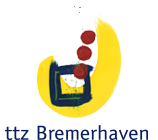
Sensory Information System(OSIS): Documentation of sensory properties through testing and consumer research for the organic industry

Funding:
Research for the benefit of SME associations in the 7th EU-Framework Programme
Project Duration:
01.01.2012 – 31.12.2014
Project Manager:
Imke Matullat
Homepage:
The sensory characteristics of food are important, market relevant factors – especially for organic products. Since the legal (EG-Öko-VO) regulations and the regulations of European cultivation and production association for ecological food include stricter standards, these products differ considerably from conventional products in terms of their sensory characteristics. Previous comparisons were usually restricted to the chemical analysis, with taste being only rarely included in the testing. Furthermore, they were almost exclusively concerned with unprocessed food. Additionally, the various requirements with regards to the use of additives or flavours as well as different production processes in the several regions of Europe have not been compared yet.
The project’s objectives are the composition of a sensory product description (both analytical and hedonic) as well as the identification of sensory preferences for six different product categories: dairy products, bakery products, meat products, oils, tomato products and apples. Subsequently, the data from the analytical description are linked to data from consumer tests. Jointly, the Bund Naturkost Naturwaren Herstellung und Handel (BNN), the Forschungsinstitut für Biologischen Landbau (FIBL), and the ttz Bremerhaven Sensoriklabor in collaboration with five other European eco-organizations and research institutions will develop a country-specific overview of the preferred sensory qualities for each product category.
Additionally, a broad (300 persons/partner country) customer survey will be conducted in order to facilitate a correlation between purchase behavior, expectations and sensory impressions. With the aid of specific statistical methods, it is supposed to be determined which demands for organic products can be identified within a specific target group. Different regulations for the production of organic products are also considered. The influence that these regulations may have on the sensory quality of organic products will be examined carefully.
On the basis of these results, a “European map of taste?? for the organic products of the examined categories will be developed. This “map of taste?? displays which sensory specifications of organic products are preferred by consumers in the respective countries. Moreover, it can be seen if the current positive consumption-image of organic food represents the actual sensory qualities or if there are major discrepancies, which will require an optimization of products.
ECROPOLIS‘ basic objective is to develop an interactive database called OSIS (Organic Sensory Information System), which composes the following information for consumers, retailers and producers:
- By analytical and hedonic methods indentified sensory characteristics of selected organic products from the partner countries as well as sensory consumer preferences
- Results of the consumer survey with regards to: purchase behavior, expectations, sensory impression
- Strategic suggestions for production, marketing and regulations for organic products based on the linkage of tasting results and the consumer survey
Companies and associations obtain a considerable better understanding of the production methods and the capabilities of raw materials. With this knowledge, organic products can be developed, which exactly match the needs of the customers. Dr. Gabriela Wyss, scientist from the Swiss Forschungsinstitut für biologischen Landbau (FIBL) is in charge of the project coordination.



